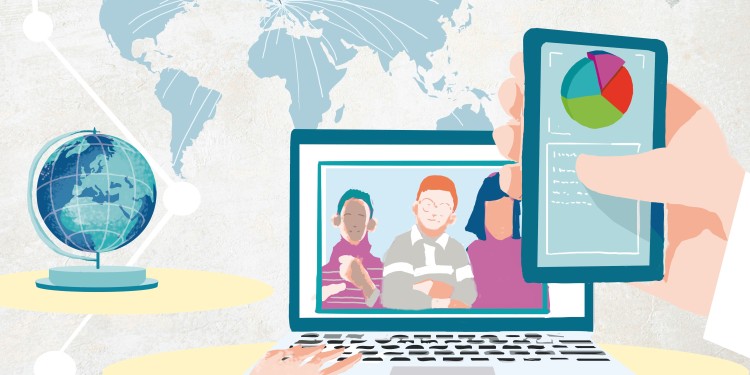
Academic freedom at risk
It has long been the case that no one country can by itself master the global challenges of our times such as climate change, wars or the Covid pandemic. Academic and scientific collaborations and alliances are indispensable for dealing with these problems, and they form the basis not only for fact-based findings but also for culture and education policies as part of a country’s foreign policy. For most universities, therefore, internal cooperation with colleagues around the world is not only a necessity but also, as a rule, a matter of course. The University of Münster alone is currently a signatory to over 550 partnership agreements.
But the fact that critical, independent universities are under serious threat from autocracies and dictatorships is something that has been clear since long before the war in Ukraine: Myanmar, Iran, Afghanistan and Syria bear witness to this. The consequence is that scientific cooperation is in danger or has even been forbidden by law. The German government, for example, has frozen scientific and academic relations with Russia since that country’s war against Ukraine – a war which constitutes a breach of international law.
Irrespective of whether the issue is the general security situation, the rule of law, or political influence on academic and scientific work – instability is on the increase worldwide. “Research and education are important mainstays for international understanding and democracy, says Prof. Michael Quante, Vice-Rector for International Affairs, Transfer and Sustainability at Münster University. “This is why we advocate that no general prohibitions should be declared – as far as the law allows. Quite the opposite: collaborations with individual researchers should be continued for as long as possible – regardless of how difficult a particular situation may be.” For example, the University of Münster still maintained its cooperation with Brazil even under the populist government of Jair Bolsonaro.
In the Academic Freedom Index recently published by the Universities of Erlangen-Nuremberg and Göteborg, the authors describe how academic freedom is on the retreat for more than 50 percent of the world’s population. Some of the things which the index includes are indicators relating to the freedom of research, teaching and academic exchanges, as well as to the institutional autonomy which universities have. Accordingly, the situation has worsened in 22 countries – for example in Russia, India, China and Turkey. “Who our researchers collaborate with is ultimately their own responsibility,” says Quante. “But they should develop an awareness of the problem: with which partners are collaborations right and important – and thus ethically acceptable?” The University of Münster advises and supports its staff on many legal issues, for example how to handle security-relevant research.
In a world of around 200 states with differing cultural identities, legal systems and value systems, politicians and universities need to maintain realistic relations for exchanges. Many researchers here in Germany are asking themselves how this can succeed – after all, each case is different and inflexible one-size-fits-all approaches are of no help. “In the spirit of a global community of responsibility, we are calling for a differentiated approach and a weighing-up of the opportunities and risks presented by each international academic and scientific cooperation,” says Christian Strowa from the Centre of Competence for International Academic Cooperation (KIWi) within the German Academic Exchange Service.
“Science Diplomacy” is the order of the day for tackling problems jointly and for building up and maintaining constructive international partnerships – also, or precisely, in politically unfavourable conditions. “Otherwise, we will not succeed in building trust or in managing rapprochements,” says Michael Quante.
Author: Kathrin Kottke
This article first appeared in the University newspaper wissen|leben No. 2, 29. March 2023.
